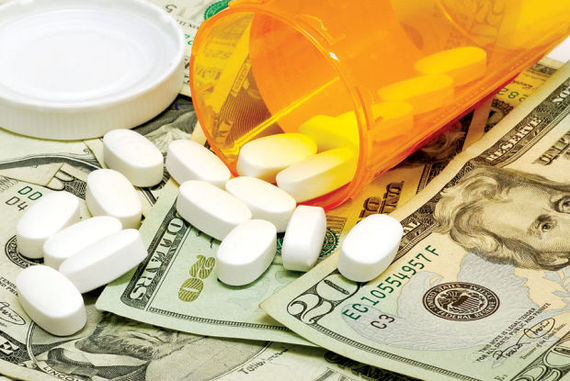Dear Savvy Senior,
Can you recommend any tips to help me save on my medication costs? I currently take five different prescription medications that are very expensive even with insurance.
--Searching Susan
Dear Susan,
There are actually a variety ways you can reduce your out-of-pocket medication expenses without sacrificing quality. Here are a few strategies that can help, whether you are covered by employer-based health insurance, a health plan on the individual marketplace, or a private Medicare Part D drug policy.
Know your insurance formulary rules: Most drug plans today have formularies (a list of medications they cover) that place drugs into different "tiers." Drugs in each tier have a different cost. A drug in a lower tier will generally cost you less than a drug in a higher tier, and higher tier drugs may require you to get permission or try another medication first before you can use it.
To get a copy of your plan's formulary, visit your drug plan's website or call the 800 number on the back of your insurance card. Once you have this information, share it with your doctor so, if possible, he or she can prescribe you medications in the lower-cost tiers. Or, they can help you get coverage approval from your insurer if you need a more expensive drug.
You also need to find out if your drug plan offers preferred pharmacies or offers a mail-order service. Buying your meds from these sources can save you some money too.
Switch to generics: Ask your doctor or pharmacist if the medications you're taking are available in a generic form or a less expensive brand-name drug. About 75 percent of all premium drugs on the market today have a lower-cost alternative. Switching could save you between 20 and 90 percent.
Pay for generics yourself: Most generic medications cost less if you don't use your insurance. For example, chains like Target and Walmart offer discount-drug programs (these programs will not work in conjunction with your insurance) that sell generics for as little as $4 for a 30-day supply and $10 for a 90-day supply, while some insurance companies charge a $10 copayment for a 30-day supply.
Ask your pharmacy if they offer a discount-drug program and compare costs with your insurance plan. You can also find free drug discount cards online at sites like NeedyMeds.org, which can be used at most U.S. pharmacies.
Split your pills: Ask your doctor if the pills you're taking can be cut in half. Pill splitting allows you to get two months worth of medicine for the price of one. If you do this, you'll need to get a prescription from your doctor for twice the dosage you need.
Try over-the-counter drugs: Ask your doctor if a nonprescription medication could work as effectively as a more expensive prescription drug. Many over-the-counter drugs for common conditions such as pain-relievers, allergy medications, anti-fungals and cold-and-cough medicines were once prescription only. But be aware that if you have a flexible spending account or a health savings account, you'll need to get a doctor's prescription for the over-the-counter drugs (except insulin) to get reimbursed.
Shop around: Drug prices can vary widely from drugstore to drugstore, so it's definitely worth your time to compare prices at different pharmacies. To do this use GoodRX.com, a Web tool that lets you can find prices on all brand name and generic drugs at virtually every U.S. pharmacy.
Search for drug assistance programs: If your income is limited, you can probably get help through drug assistance programs offered through pharmaceutical companies, government agencies and charitable organizations. To find these types of programs use BenefitsCheckUp.org, a comprehensive website that lets you locate the programs you're eligible for, and will show you how to apply.
Send your senior questions to: Savvy Senior, P.O. Box 5443, Norman, OK 73070, or visit SavvySenior.org. Jim Miller is a contributor to the NBC Today show and author of "The Savvy Senior" book.

